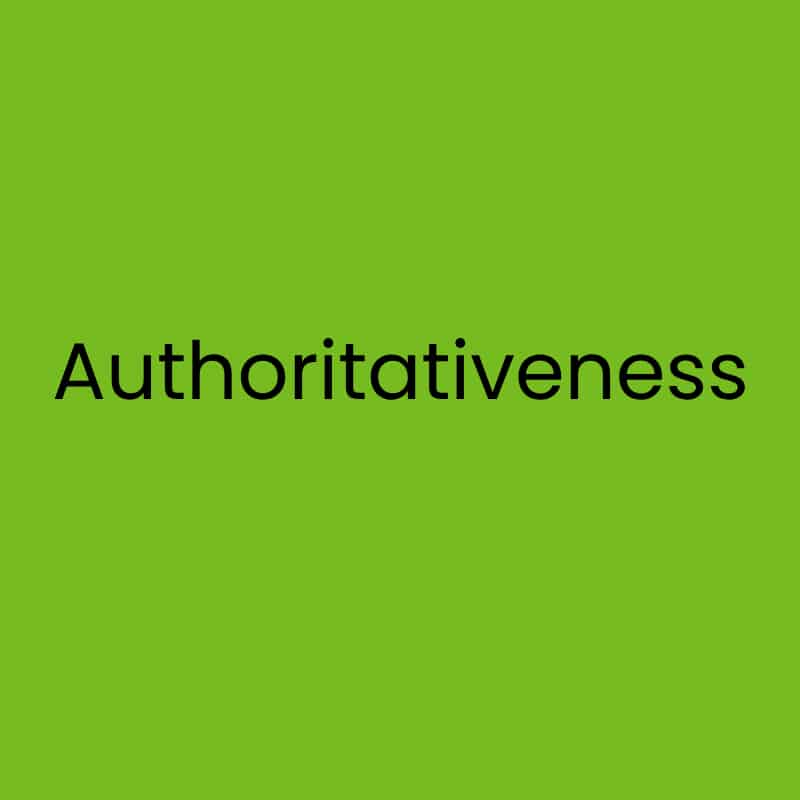Ranking well on Google requires building trust and authority through SEO strategies. One of the most important frameworks for establishing credibility online is EEAT, which stands for Experience, Expertise, Authoritativeness, and Trustworthiness.
First introduced in Google’s Search Quality Rater Guidelines, EEAT is a set of criteria Google uses to assess content quality and, ultimately, influence search rankings. By understanding and implementing EEAT principles, content creators and SEO professionals can improve the visibility of their sites while ensuring that users find high-quality, trustworthy information.
This guide breaks down the components of EEAT, explains why each element matters and offers actionable tips for incorporating these principles into your content strategy.


What Is EEAT and Why Is It Important?
EEAT is Google’s way of assessing whether content on a website meets certain standards of quality and trustworthiness. Introduced initially as E-A-T (Expertise, Authoritativeness, Trustworthiness), Google added “Experience” as an additional factor in 2022 to provide a more holistic view of content quality.
This framework is essential for “Your Money or Your Life” (YMYL) pages—content that can impact a person’s health, finances, or overall well-being—because low EEAT content in these areas can pose user risks.
When Google’s quality raters—individuals hired by Google to evaluate search results—review content, they assess it based on EEAT standards as part of the Search Quality Rater Guidelines.
Although quality raters do not directly impact rankings, their evaluations inform Google’s algorithms, helping them understand what trustworthy and reliable content should look like. In short, E-E-A-T is crucial for any SEO strategy that aims to produce high-quality content and rank well in search results.
Breaking Down the E-E-A-T Criteria
1. Experience
Google introduced “Experience” to evaluate the first-hand experience of the content creator. For some topics, especially personal recommendations, product reviews, or experiential advice, readers want insights from someone who has engaged with the subject matter. Google values people-first content that reflects genuine, real-world experience.
Example: If you’re publishing content about traveling to a specific country, Google will likely value insights from someone who has visited the location over a generic summary.
How to Demonstrate Experience
-Include personal anecdotes and specific examples.
-Show first-hand insights through images, videos, or other media.
-Use “I” or “we” to clarify that the content is based on personal experience.
2. Expertise
Expertise refers to the knowledge and skill level of the content creator. This is especially important for topics that require specific qualifications or a deep understanding, such as medical, legal, or financial subjects. Google expects content in these areas to come from someone who has the necessary knowledge through formal training or extensive experience.
Example: A blog post offering medical advice should ideally be authored by a healthcare professional or someone with recognized credentials in the medical field.
How to Demonstrate Expertise
-Showcase credentials, certifications, or relevant experience.
-Link to other articles or research you’ve published in the field.
-Reference authoritative sources to support your statements.
3. Authoritativeness
Authoritativeness measures the credibility of the content creator or website in a particular field. This factor evaluates whether others see the author or site as a trusted source of information. Google’s search algorithms are designed to favor sources that have established authority through high-quality backlinks, mentions, and citations from other reputable sites.
Example: A website consistently cited by other credible publications in its industry is more likely to be seen as authoritative.
How to Demonstrate Authoritativeness
-Build a strong backlink profile by networking and guest posting on reputable sites.
-Earn mentions from other trusted websites in your industry.
-Provide a detailed bio that highlights your reputation and experience.
4. Trustworthiness
Trustworthiness is arguably the most important component of E-E-A-T, as it is foundational to Google’s ranking algorithm. Without trust, even the most expert or authoritative content will struggle to rank well. Trustworthiness includes factors like transparency, accuracy, and content quality. Google wants users to trust that they get reliable information, particularly on sensitive YMYL topics.
Example: Financial advice from a website with transparent author information and easily accessible privacy policies will rank higher than anonymous or opaque sources.
How to Demonstrate Trustworthiness
-Use HTTPS to secure your website.
-Make sure the content is accurate and well-cited.
-Include an “About Us” page, contact information, and author bios.
EEAT for Different Types of Content
While EEAT is essential for YMYL content, it also applies to other types of content. Here’s how EEAT can look for various content types:
Product Reviews: Emphasize first-hand experience with the product, showing that the reviewer has used it.
News Articles: Focus on accurate reporting and credible sources to build authority and trust.
How-To Guides: Demonstrate expertise by showcasing in-depth knowledge and providing step-by-step guidance.
Opinion Pieces: Highlight the author’s credentials to establish authority and ensure opinions are backed by experience or expertise.
Each type of content will have a unique way of demonstrating E-E-A-T. Still, the core principles remain the same: Google wants to see content created by trustworthy, knowledgeable individuals.
How to Improve Your EEAT for SEO Success
Improving EEAT isn’t a quick fix; it requires a strategic approach. Here are some actionable steps to increase your EEAT score:
Audit and Update Existing Content: Regularly review and update your content to ensure it’s accurate, relevant, and well-cited.
Highlight Author Credentials: Make sure every piece of content lists the author’s relevant experience or qualifications.
Enhance Site Security: Use HTTPS, update your privacy policy, and be transparent about data collection practices.
Engage in Industry Communities: Guest post, participate in forums, and network within your industry to build your site’s authority.
Optimize Your “About” and “Contact” Pages: Make sure your website includes comprehensive and accessible information about your team and company.
These steps signal to Google that your site is reliable, making it more likely to achieve a high E-E-A-T assessment.
Conclusion
Understanding and applying EEAT principles is essential for building a strong SEO foundation. By focusing on Experience, Expertise, Authoritativeness, and Trustworthiness, you can create content that not only ranks well on Google but also genuinely helps users.
In today’s digital landscape, where search quality is more important than ever, E-E-A-T provides a roadmap for producing high-quality, trustworthy content that resonates with readers and ranks in search results.
If you’re looking to take your EEAT strategy to the next level, consider working with LuccaAM, a team of SEO experts who can help you meet Google’s quality standards and improve your site’s visibility. Don’t let low EEAT hold back your rankings—build a strategy that earns Google’s trust and captures your audience’s attention.
FAQs
What does EEAT stand for in SEO?
E-E-A-T stands for Experience, Expertise, Authoritativeness, and Trustworthiness. It’s a set of criteria Google uses to evaluate the quality of content on websites, especially for topics that impact users’ well-being.
How does EEAT impact SEO rankings?
EEAT is a major factor in determining a website’s credibility, particularly on YMYL topics. High EEAT signals to Google that your content is trustworthy and relevant, which can improve rankings in search results.
Can low E-E-A-T harm my website’s SEO?
Yes, low E-E-A-T can negatively impact your rankings, especially if you publish content on YMYL topics. Pages that lack credibility or authority are less likely to rank well in Google’s search engine.
How can I improve my website’s EEAT?
To improve EEAT, focus on showcasing experience, credentials, and author bios, securing your website, and regularly updating content to maintain accuracy and relevance. Working with SEO experts at LuccaAM can also help you meet Google’s EEAT standards.
- Growing Your Rockford IL Business with Modern Website Design - April 15, 2025
- Content Pruning: The Key to Better SEO and Higher Rankings - March 25, 2025
- Internal Linking SEO: How to Boost Your Rankings and User Experience - February 18, 2025




